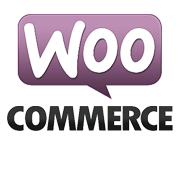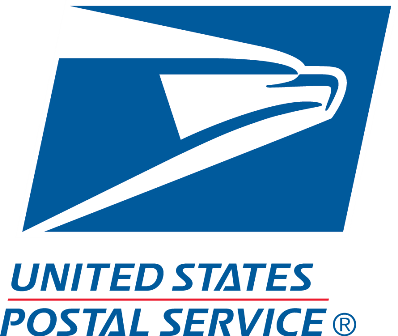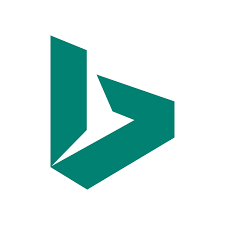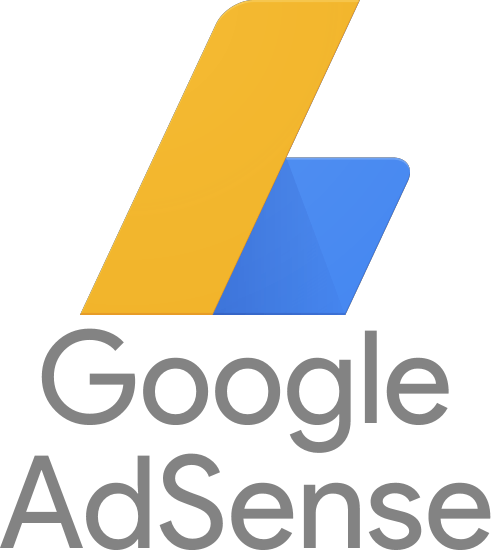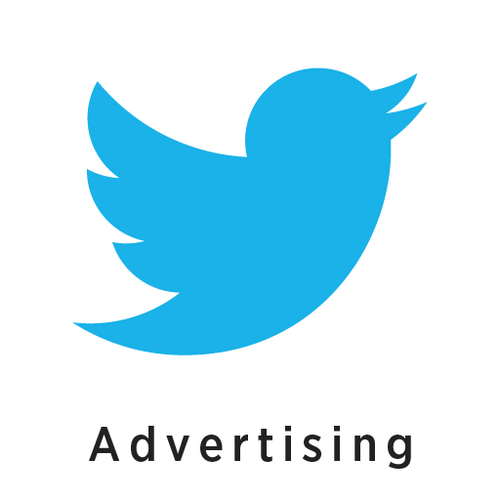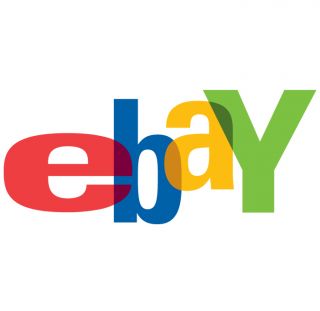
On Starting A Press Release Service With 30% Growth Over Last Year
I am Christopher Laird Simmons, and I am the owner, co-founder of Neotrope, and the Send2Press newswire service. We’ve been in business since Jan. 1983 when my father and I co-founded the company (known as Mindset from 1987-2000, and S.U. Graphics and Marketing 1983-1987). Over the years we’ve done just about every type of communications service you can imagine, but today our main services are offered via our Send2Press brand.
This includes targeted press release distribution, writing/editing, and social marketing of the news. Our news is featured in the Associated Press, Apple News, Google News, syndicated onto hundreds of websites around the world, and we have strategic partnerships with major data platforms. Send2Press is a “true” newswire, meaning we manage our own media lists, and are not a reseller of another company’s services.
Our business is a tad cyclical due to the economy, but both 2019 and then 2020 were our best years in 10 years, since the recession, with 30% growth over the prior year. We had previously made the Inc. 5000 in 2009. 2019 and 2020 were fantastic growth years for us, with 2021 on track to be another ‘best year.’
What's your backstory and how did you get into entrepreneurship?
As a pre-teen, I was interested in everything from music-making to photography, film making, special effects, writing, etc. My father was a published author and my mom an artist, so always had a left brain/right brain benefit. My parents were the largest influence in trying new things and not being constrained by “don’t do that” mentalities. My father was a college professor and self-published a book in 1969, which was featured in TIME magazine in 1970, and this inspired me into wanting to write, but also an interest in self-promotion and marketing.
Learn to “cross-shop” information on business sites to get a better answer on something you’re interested in. Don’t be afraid to fail. The only business that ever succeeds is the one actually started and nurtured.
I was also used to pushing boundaries, as I used to ride my bicycle outside of town at age 8, 21 miles to visit a friend and always enjoyed the road of discovery; trial and error. I used to make my own fireworks, age 12. In getting started in the business, my parents had always been a mix of jobs then self-employed, and that gave me a blueprint of “you only succeed if you actually try.”
So, I was the kid selling seeds and greeting cards door to door; never had a paper route. First paying job was cleaning up the parking lot for a motel down the street over the summer, while dabbling in drawing and design, learning to use Letraset dry transfer lettering to do logos, and tape on layout boards.
Parents are a critical influencer: at age 13 my parents said I could either have a used Moog synthesizer a friend of theirs had, or I could have a used 35mm camera from a local pawn shop. I chose the camera, which led to my learning photography and making money shooting bands, and later real estate as part of my early teen service gigs.
My main path to entrepreneurship was that I would often see something and think, “Hey I could do that!”



Take us through your entrepreneurial journey. How did you go from day 1 to today?
I was an early entrepreneur as a teenager (starting age 13), doing graphic design as a teen (self-taught) while I also had a movie memorabilia business I started at age 16. Paid for my first car with money from that. Published a popular fanzine for the original “Battlestar Galactica” starting in 1978. Self-published a book in 1981, and wrote my first press release for that, garnering coverage in the June 1982 issue of Playboy magazine. This led to launching a formal business in Jan. 1983 to do design, marketing, advertising, photography, print brokering, and of course press releases.
In my youth I wanted to be an everyman, I wanted to be a comic book artist (a pencil drawing I did of Galactus was actually put up in the Marvel bullpen); wanted to be a filmmaker (a letter to the editor ran in Super 8 FIlmmaker magazine); designer (I did logos and fliers for local companies while a teenager to learn the ropes); wanted to be a musician and recording engineer (I interned one summer with a mobile recording company). I wanted to do special effects and dabbled with kitbashing spaceship models and photographing them.
Living at home until the age of 20 made it easy to be a teenage entrepreneur and dabble in learning things with that financial cushion. In 1983 I started working for a printing company part-time, moving out of the nest, while keeping my own business on the side. In 1987 went back to working full time for myself; upgrading the company with a printing press, typesetting equipment via desktop publishing, darkroom, and more. My father helped me bootstrap expanding the business in 1987 with a small loan for the new equipment since early tech like laser printers were fairly expensive.
My only formal education is going to Compugraphic Typesetting School for a week in 1985 to learn the technical skills for using that equipment. Funnily enough, this training ended up being directly applicable to learning HTML, as the “markup” was almost identical.
In 1995 I started doing web development, in 1996 web hosting and eCommerce development (I hosted Oprah’s “Begin with Love” video series order forms on my server), and SEO. In 1997 spun off a web-based PR offering for clients who didn’t want to hire my company full-time as a PR/branding agency. This offshoot became Send2Press in 2000. Over the years the spinoff has been featured in dozens of major magazines and news systems including Entrepreneur and United Press International. In 2005 I started phasing out web design and hosting and eCommerce services, and in 2010 the Send2Press brand became the main company activity, leaving behind SEO marketing, and video editing.
I’ve been listed in two editions of the original Marquis Who’s Who in the mid-’90s and am a member of ASCAP and the PRSA. My company, Neotrope®, made the Inc. 5000 in 2009, is a member of GS1 for bar codes, and is listed with the RIAA for ISRC codes, and Bowker for ISBNs.
I’ve certainly dabbled in many other things sideways from my “main business” I have kept alive for over 35 years now. I’ve written for many print magazines over the years, after selling my first paid article in 1984 (for POLYPHONY). In the late 90s and early ’00s, I was on the masthead of a couple of magazines I wrote for monthly including DIGITAL IMAGING. An article I did on legal issues for web designers ran in the Graphic Artists Guild publication. As a digital artist my work was used for the cover of Cal State Long Beach’s (CSULB) Science and Technology course catalog (1997); was included in the large Bytes of Art installation that ran all over San Francisco; and I self-published a hardcover art book, “Fractopia” which was a round of that series of art. I also created nearly two dozen covers for national print magazines. As a musician, I played in techno/electronica bands in the mid-’80s, and one band, Pets Gone Wild, was featured on page 2 of the Los Angeles Times CALENDAR section and was an LA Weekly “band name of the week.” I published numerous cassettes of original instrumental music in the mid-late ‘80s, played on ‘space music’ radio shows, and favorably reviewed in numerous publications including ELECTRONIC MUSICIAN. My music was also used as the credit themes for two cable TV productions from the Long Beach Museum of Art and Video Annex. Among many many other creative successes.
I use all of this experience to work with clients, and especially start-ups, having walked in their shoes in so many cases.

How are you doing today and what does the future look like?
As the main company activity, Send2Press has had wonderful growth in a very competitive field. Many upstarts have come and gone, some doing quite well, others went in a heartbeat. My company does very well due to honest agency pricing, turning away a vast amount of spurious news to maintain the high quality of news announced.
We have a fantastic reputation and this has helped maintain the growth the past several years after dips in the economy. We are lucky to have several agencies who bring us, monthly clients, from their roster, and we have many clients who have been with us for well over a decade now, and trust we will do what we say we do while remaining innovative and on top of new technologies.
Coming from an ad agency background from our early days, I am very adept at managing the cost of acquisition of new clients, cost of doing business vs gross revenue, retiring offerings no longer cost-effective, and keeping an eye on partner opportunities that offer value versus simply taking away revenue.
We’ve been very lucky the past couple of years to have several large business websites write positive reviews of our company (which we did not know about, and we never pay for fake reviews) while secret shopping us or doing blind calls about our services by phone. It was unexpected to be ranked “best overall” on one side, especially when compared to billion-dollar companies, while we’re a small family-owned business and not a “megacorp.”
As a private company, we don’t share gross income, net income, or similar. Our social media following is fairly consistent, but it’s a bit gain one, lose one due to the fact our content varies daily based on client work, not content we create, and not enough cat photos probably.
Through starting the business, have you learned anything particularly helpful or advantageous?
As with all businesses I’ve run since a teen; you have to be on top of what works, and be willing to try new things and see what sticks. Listening to clients is important, too. Figuring out where somebody had a problem interacting with you, and then enabling a solution. If real-time chat doesn’t help, stop doing it. If you get the same amount of business cutting your advertising in half, that is the kind of thing you need to test and address. If launching a podcast takes up too much time and is done mostly for ego, spend the time on something else. (I had a podcast in 2004; a bit too early!)
We have had our share of partnerships that ended up being a waste of time or we outlived them, which has made me far more selective on doing them. When you’re successful and have longevity, everybody wants to partner with you, and I’m far past doing that just to do it.
I am lucky that I have the left brain/right brain thing. This is useful for picking design colors, but also good for optimizing content for SERPS, or spotting errors in client work. As with many things, you only become an expert at anything by actually doing it.
Probably the main thing I’ve learned over the past decade is to not worry about the other guy. I never go to competitor websites anymore; don’t care what plans they have versus mine. It’s like being a pizza place; you make what you like, and others either like it or don’t -- but only a fool drives around town “testing” everybody else’s pizza. Make the best thing you can, and improve it based on client response. Don’t worry about other folks and what they do.
What platform/tools do you use for your business?
Most of our original tech was proprietary, such as eCommerce solutions for clients in the early days; our CMS which pre-dated WordPress by six years, etc. We build most stuff in the house as it’s more reliable long term.
Today we do use WordPress, WooCommerce, Adobe applications (Photoshop, etc.); Windows applications like TextPad, Roboform, Snagit, and Camtasia; MS Office; FileZilla. Servers run on Red Hat and Plesk. We use MailChimp for customer newsletters; PHPlist for internal mailings; Thunderbird for IMAP mail to our dedicated mail server.
These tools have been proven to be reliable, albeit with major modifications (e.g., WordPress and WooCommerce).
Folks keep getting me to move to CPANEL, but I’m kind of a PLESK freak.
What have been the most influential books, podcasts, or other resources?
I tend to go my own way. I taught myself most things related to business, finance, DBAs, trademarks, etc., by “finding out” when I needed to.
One guy, I do follow and he has kind of become a company evangelist for us, kind of like a fifth Beatle, is Loren Weisman. He has a great podcast, does some really great articles, and is all about “authentic branding” which is a big concept now. He’s also a highly regarded author, and public speaker, and one of the few people I do actually follow.
Advice for other entrepreneurs who want to get started or are just starting?
Do what you like, don’t just launch something to do that. If you hate hamburgers it would be stupid to launch a fast-food franchise. If you do art, get that on Etsy or similar, share videos of work in progress. If you want to write a book, do it; nobody is going to do it for you to speak in your authentic voice.
Don’t pay a consultant to teach you something you can learn on YouTube or in a book. Learn to “cross-shop” information on business sites to get a better answer on something you’re interested in. Don’t be afraid to fail. The only business that ever succeeds is the one actually started and nurtured.
Where can we go to learn more?

Download the report and join our email newsletter packed with business ideas and money-making opportunities, backed by real-life case studies.

Download the report and join our email newsletter packed with business ideas and money-making opportunities, backed by real-life case studies.

Download the report and join our email newsletter packed with business ideas and money-making opportunities, backed by real-life case studies.

Download the report and join our email newsletter packed with business ideas and money-making opportunities, backed by real-life case studies.

Download the report and join our email newsletter packed with business ideas and money-making opportunities, backed by real-life case studies.

Download the report and join our email newsletter packed with business ideas and money-making opportunities, backed by real-life case studies.

Download the report and join our email newsletter packed with business ideas and money-making opportunities, backed by real-life case studies.

Download the report and join our email newsletter packed with business ideas and money-making opportunities, backed by real-life case studies.
